Healthcare Communication Access
With improved healthcare communication access for people with hearing loss, health outcomes can be enhanced, costs reduced, and equitable care promoted.
Additional auxiliary aids and services for people with hearing loss: Technology for People with Hearing Loss in the Healthcare setting (this webpage). Includes captions and personal amplification devices.
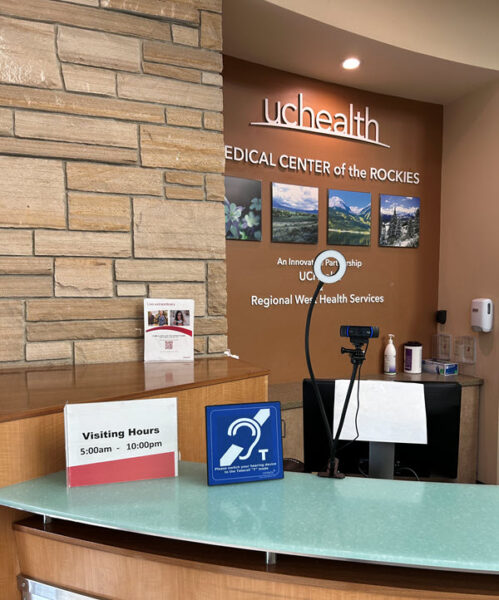
Permanently installed counter hearing loop at the front desk. UCHealth Medical Center of the Rockies, Colorado
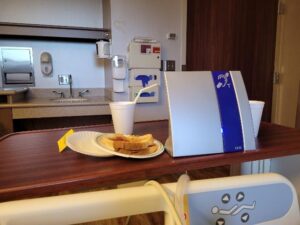
Portable counter hearing loop on bedside table at Nebraska hospital.
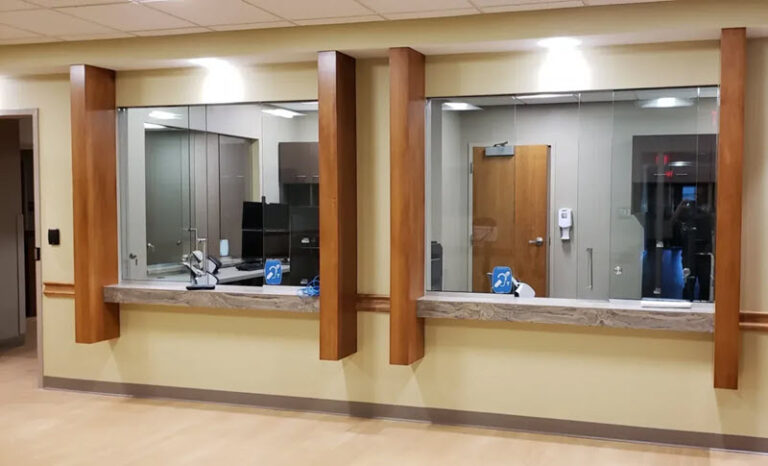
Counter hearing loops at check-in counters at medical offices. Photo credit: Audio Directions
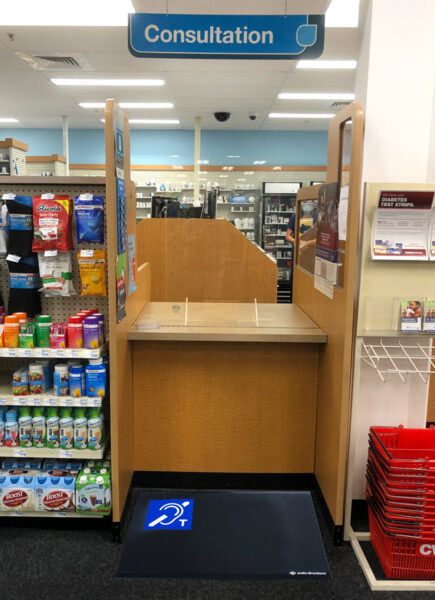
Floor mat hearing loop in front of pharmacy counter. Photo credit: Audio Directions
A doctor visit or hospital stay can be stressful enough, but if you do not hear well, that stress is compounded because of the critical nature of the information being disseminated. It is essential for the patient’s health and well-being that they clearly understand doctors’ and medical staff ‘s instructions. Understanding and asking appropriate questions can avoid mistakes and misunderstandings, which helps the patient to make reasoned decisions and get the safest and best care possible.
Covered health care facilities include, but are not limited to: hospitals, doctors’ offices, pharmacies, dentists’ offices, acupuncturists’ offices, etc. Health care agencies run by state and local governments are covered under Title II of the ADA. Health care organizations run by private businesses or nonprofit organizations are covered under Title III of the ADA. All places covered by the ADA must provide access to their facilities and programs for people with disabilities.
“People may not always want to disclose an inability to hear, especially if it isn’t the reason for the consultation.”
—Inclusive environments for patients with hearing loss, 21 Feb 2025
Possible Assistive Listening System Locations
- Service desks: emergency room check-in, information desk, pharmacy (Counter hearing loops)
- Individual patients: consultation, patient room (Portable counter hearing loop, portable FM system)
- Rooms: auditoriums, community rooms, chapel (Permanent hearing loop, FM, IR)
Because communication is a cornerstone of patient safety and quality care, every patient has the right to receive information in a manner he or she understands. Effective communication allows patients to participate more fully in their care. When a patient understands what is being said about his or her care, treatment, and services, that patient is more likely to fulfill critical health care responsibilities. Communicating effectively with patients is also critical to the informed consent process and helps practitioners and hospitals give the best possible care.
—The Joint Commission Comprehensive Accreditation Manual for Hospitals , “Rights and Responsibilities of the Individual” Chapter, Introduction to Standard R1.01.03 (2019)
I have taken the portable loop with me to all of my doctors appts and have found it extremely helpful. I hear everything and I don’t have to ask them to repeat themselves when I don’t hear them. I have also taken it as an opportunity to talk with them about having portable hearing loops at their reception desks as well as one box available to use in the doctors office when someone is struggling to hear. As you can imagine I have had a variety of responses—some listened to my reasoning for why it was important for them to have these devices available and asked questions and others just blew me off. It gives me new insights into the quality of communication I am receiving from different health care providers.
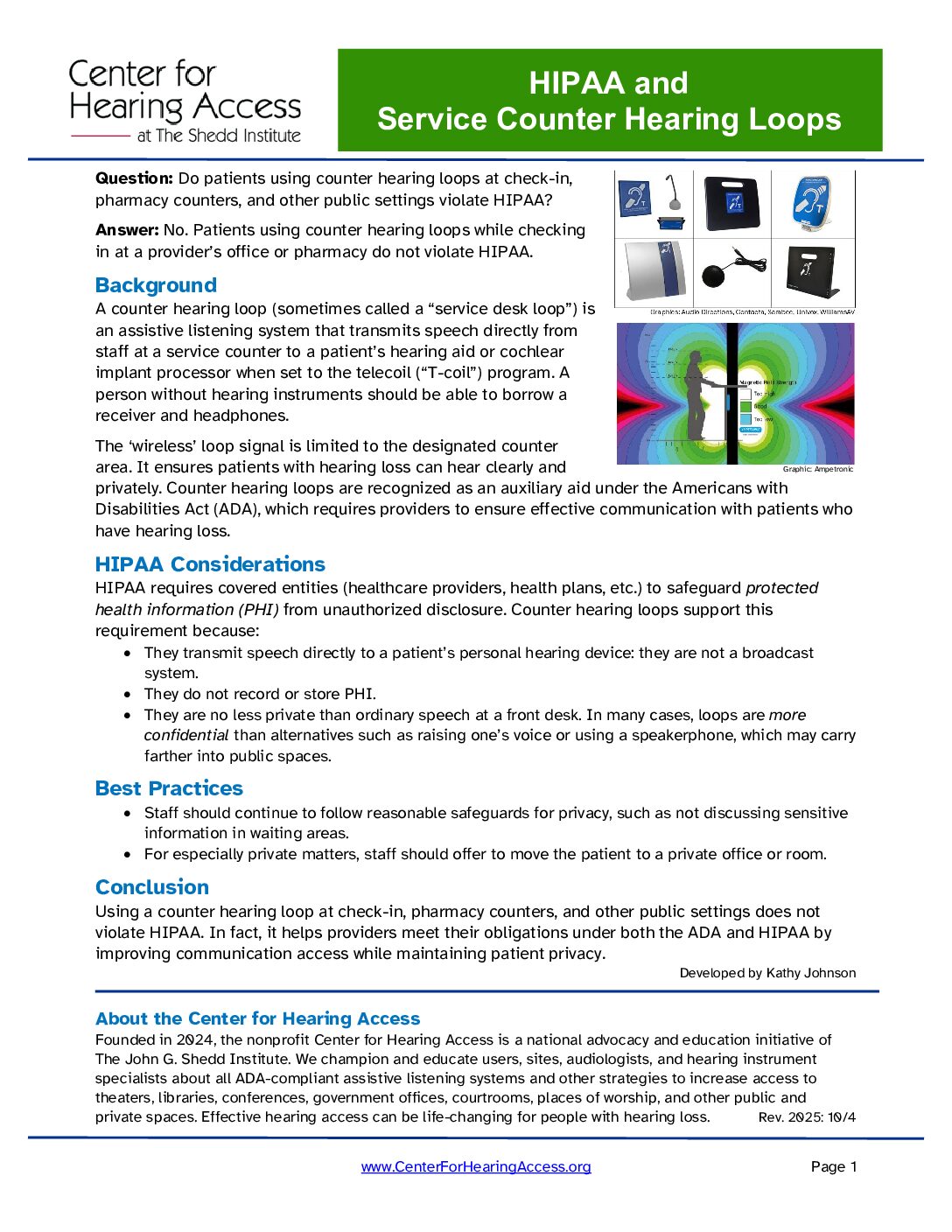
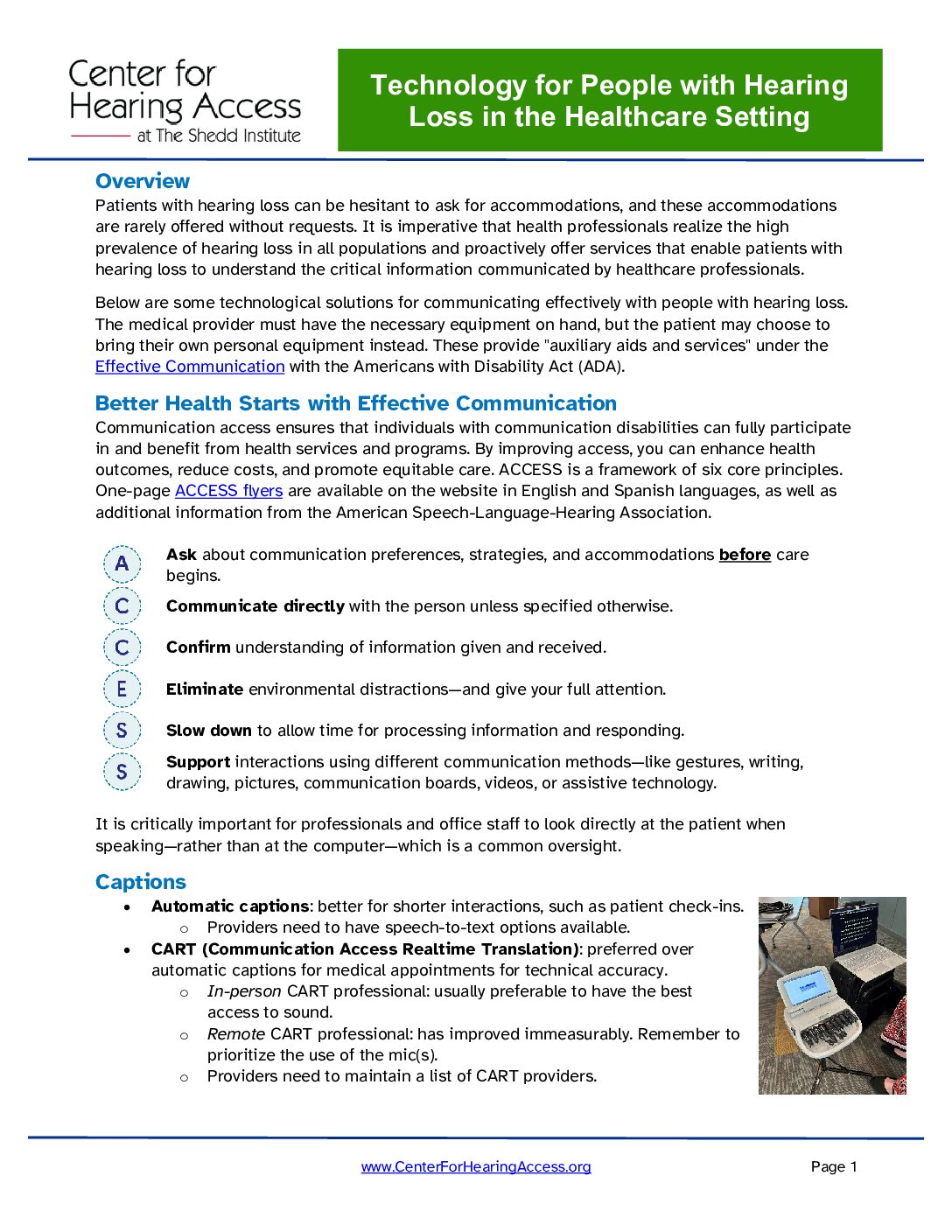
Resources
- All healthcare webpages (this website)
- Tools for patients and providers
- Library
- Zotero online library (healthcare) with articles, websites, and examples (webpage)
- Zotero online library (pharmacies) with articles, websites, and examples (webpage)
Center for Hearing Access-Assistive Listening Resources
- Paragraph template and checklist. Describe your assistive listening system on your webpage. Promoting Your Assistive Listening System, with Checklist by the Center for Hearing Access (2 pages, pdf)
- Templates for facilities/sites: graphics, audio pre-event, handouts, ideas.
- Lists of hearing loops across the United States and Canada.
